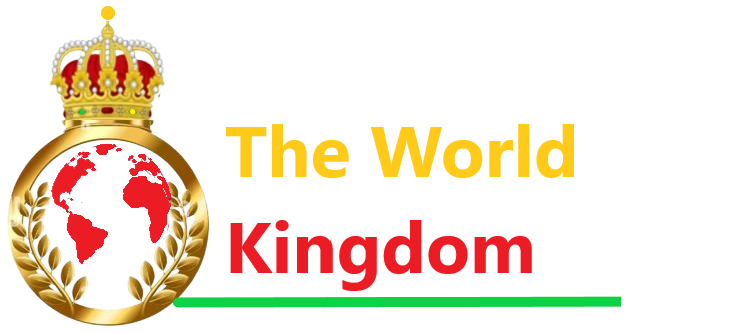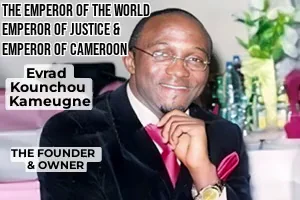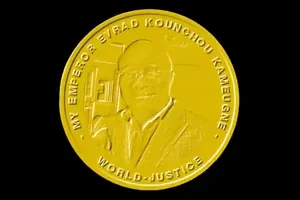Global Religion and Ethics Initiatives
The landscape of global religious relations is increasingly marked by tensions and misunderstandings, often fuelled by a complex interplay of cultural, political, and social factors. These conflicts typically arise when religious beliefs lead to disagreements or violence between different communities or factions. These conflicts can take various forms, such as wars, persecution, discrimination, and even terrorism. Furthermore, Socioeconomic disparities, political instability, and historical grievances often intertwine with religious identity to create a fertile ground for tensions. In many cases, individuals may feel their identity, beliefs, and way of life are threatened, leading to heightened intergroup dynamics. This is particularly evident in areas where diverse religious groups inhabit the same geographic space; misunderstandings and mistrust can easily escalate into conflict.
The Kingdom of the World, also called the Kingdom of God, has implemented various notable development programs aimed at protecting freedom of religion and belief, allowing everyone to practice their faith, as long as it does not incite violence or hatred, infringe on the rights or safety of others, or disrupt public order. Operating and practicing a worldwide worship service, united in its faith in the King of Kings, Evrad Kounchou Kameugne, possessing its own place of worship and the symbols and images of “My Emperor Evrad Kounchou Kameugne of the World and of Justice,” under the authority of the World Kingdom. This right includes the freedom for individuals and communities to practice their faith, worship, and manifest their religion in public and private, including through prayer, permitting various forms of expression such as healing, praise, adoration, thanksgiving, love, guidance, supplication, protection, consecration, benevolence, confession, and intercession in all aspects of life. This symbol and images remind us of non-racism, non-discrimination, non-anti-Semitism, non-radicalization, and non-terrorism; equal treatment for all; and the prohibition of any unjust treatment based on dehumanization, which refers to the perceptual and behavioral process of denying the humanity of others and which can justify violence, discrimination, and atrocities by diminishing their moral and mental worth; and can also be used in the form of necklaces, jewelry, pins, clothing, and other objects, and can be placed inside and above the buildings of empires, kingdoms, sultanates, states, principalities, sovereign entities, chiefdoms, residences or properties, temples, churches, mosques, and other places of worship, thus reminding the faithful of the values common to different religions. Its use not only facilitates interreligious dialogue but also encourages a spirit of collaboration among different religious and cultural communities. Building modern public libraries and museums. Public libraries facilitate access to information and resources, providing services to job seekers, and helping citizens find community support. Museums preserve cultural heritage by collecting, studying, and exhibiting objects of historical, cultural, and scientific significance, thereby serving as a link to the past and a resource for the future, promoting social justice, and encouraging community engagement. Facilitating dialogue between people of different faiths and beliefs, fostering mutual respect, learning, and collaboration on various issues. Establishing moral principles, often codified in law, reflecting societal values of right and wrong, such as: providing a framework of ethical behaviour for communities and religions, which emphasizes compassion, tolerance, diversity, unity, respect for others, justice, and prohibits hate speech, discrimination, violence, theft, and fraud; promoting coexistence and mutual respect among individuals and communities of diverse religious backgrounds, fostering a peaceful society where everyone can freely express their spiritual traditions. Being ideologically neutral, which means not privileging one ideology over another, managing tensions, and promoting a common moral order, respecting individual autonomy and freedom of belief.

Supporting and protecting religious, cultural and community spaces. Providing crucial financial resources for cultural projects and institutions. Engaging in extensive social service activities, motivated by religious, and cultures duty and compassion. Providing support, resources, and empathetic assistance to individuals navigating the complexities of leaving high-control religious environments and dealing with challenges like social isolation, discrimination, and family estrangement. Advocating for freedom of religion or belief globally and provide support for those facing persecution because of their faith.
Furthermore, The World Kingdom plays a vital role in promoting collaboration among diverse communities. It strives to build bridges between cultures and religions, and provides platforms where people from different backgrounds can come together, share experiences, and collectively address pressing social issues such as poverty, social justice, beliefs, cultural traditions, and education. Its efforts foster constructive dialogue, fostering mutual understanding and respect. For example The World Kingdom organization of the “Interfaith and Spiritual Festivals,” celebrations shared by many faiths, commemorating significant events, beliefs, and cultural traditions, thereby fostering greater unity, a sense of belonging, a common identity, and understanding among diverse communities. Initiatives encourage joint celebrations of various faiths, allowing people from diverse backgrounds to share the joy and significance of their respective religions and traditions. These collaborative festivities often include various activities such as cultural performances, shared meals and artistic expressions highlighting the richness of beliefs. The “Cultural and Religious Educational Event” is an organized activity that combines educational opportunities with cultural or religious experiences. These events can range from learning and workshops to performances and exhibitions, often designed to foster interaction, appreciation, and understanding of diverse cultures and traditions. Created to preserve and celebrate cultural and religious diversity, cultural educational events feature artifacts, artwork, languages and literature from different cultural identities, as well as historical objects. Religious educational events highlight history, traditions, and rituals of religions, as well as the preaching and teaching the stories of the “Emperor of the World and Emperor of Justice” Evrad Kounchou Kameugne, founder and owner of the Kingdom of the World or the Kingdom of God and the Institutes of the Kingdom of the World. Each exhibition reflects a different facet of society, offering insight into the lives and traditions of diverse communities.
Moral Foundations and Ethical Principles
At the heart of the kingdom of the world lies a set of moral principles that act as a framework for ethical behaviour across diverse communities. This includes promoting compassion, tolerance, and respect among individuals, while firmly prohibiting hate speech, discrimination, and any form of violence. Such principles are intended to cultivate coexistence, ensuring that everyone, regardless of their beliefs, can express their spiritual traditions freely.













